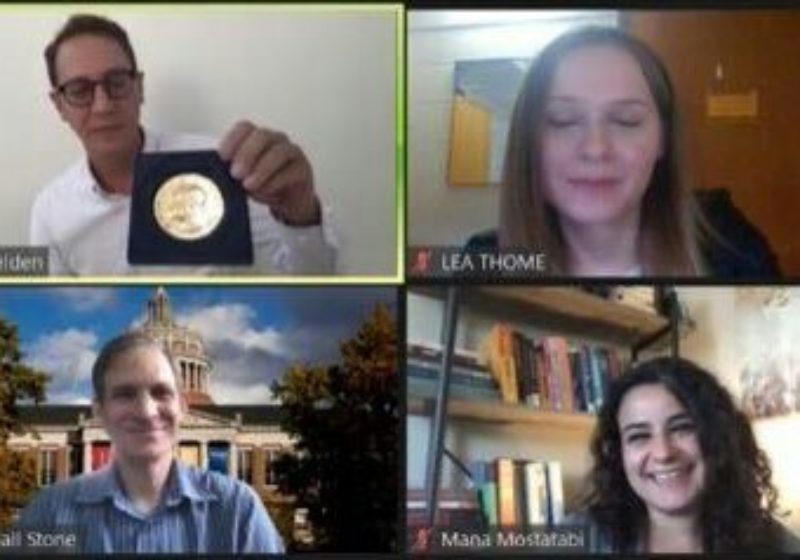On Sept. 8, the Undergraduate Political Science and International Relations Council (UPSIRC) hosted a webinar titled “The Threat of Nuclear Weapons: A Virtual Discussion about Nuclear Weapons and International Security.”
The discussion, moderated by UPSIRC President and junior Lea Thome and Secretary and sophomore Moeed Baradaran, mainly focused on the history of nuclear weapons and their relevance in today’s world. The panelists included international disarmament activist and historian in arms control Ilya Kurshenko, Communications Director at the National Iranian American Council Mana Mostatabi, UR political science professor and Director of the Skalny Center for Polish and Central European Studies Randall Stone, and United Nations Liaison for the International Campaign to Abolish Nuclear Weapons Seth Shelden.
“Nuclear winter was the climate change of our era,” Stone, who grew up during the Cold War, said. “This may seem like an abstract topic to today’s undergraduates […] When I’ve taught about nuclear deterrents and about the Cold War, I face a certain amount of disbelief from them […] [To students] it sounds a lot like science fiction.”
The discussion gave a comprehensive overview of nuclear weapons. It focused on the looming threat of nuclear war in today’s world and the theory of deterrence, the moderator role of international organizations and treaties, the Iran nuclear deal, issues surrounding power, and moral pressures facing countries that possess nuclear weapons.
“We chose this very complex issue on nuclear threat and security because it wasn’t really being talked about among our peers,” Thome said. “We are hoping that people outside of Political Science and International Relations majors and minors will participate so they can also be informed.”
According to Mostatabi, while Pakistan and India — two countries with nuclear weapons — have tense relations, much of the global attention on the nuclear threat focuses on the U.S. and China. She also stressed the importance of bringing new people into the fold of discussion on the topic of nuclear security.
“We need more women and POC to get involved in this field because if it only involves white men, it narrows the focus of discussion,” Mostatabi said. “This debate needs diversity.”
The panelists also gave attendees advice on how they can get involved in the topic. Shelden advised students to read the Treaty on the Prohibition of Nuclear Weapons, to discuss how the treaty can be used as a tool for activism, and to look into the University’s policies on nuclear industries.
“Is disarmament a naive pipe dream?” sophomore Geneva Hinkson said. “If it is, then it’s the same pipe dream embraced by anyone who has ever sought to put the brakes on the abuses of metastasized power — be they founding fathers or hippie youth movements.”
Hinkson, like other participants, carried the same sentiment and the desire to take action after the discussion. “I want to have the courage to redefine the world and thus, the old models built for it,” Hinkson said.
UPSIRC will be hosting similar virtual discussions on various topics related to international relations and diplomacy in the coming weeks.
Sanghamitra Subba is a member of the class of 2024.
Editor’s Note (9/16/20): A previous version of this article said that Shelden advised students to read the Treaty on the Non-Proliferation of Nuclear Weapons. Actually, he advised reading the Treaty on the Prohibition of Nuclear Weapons.





